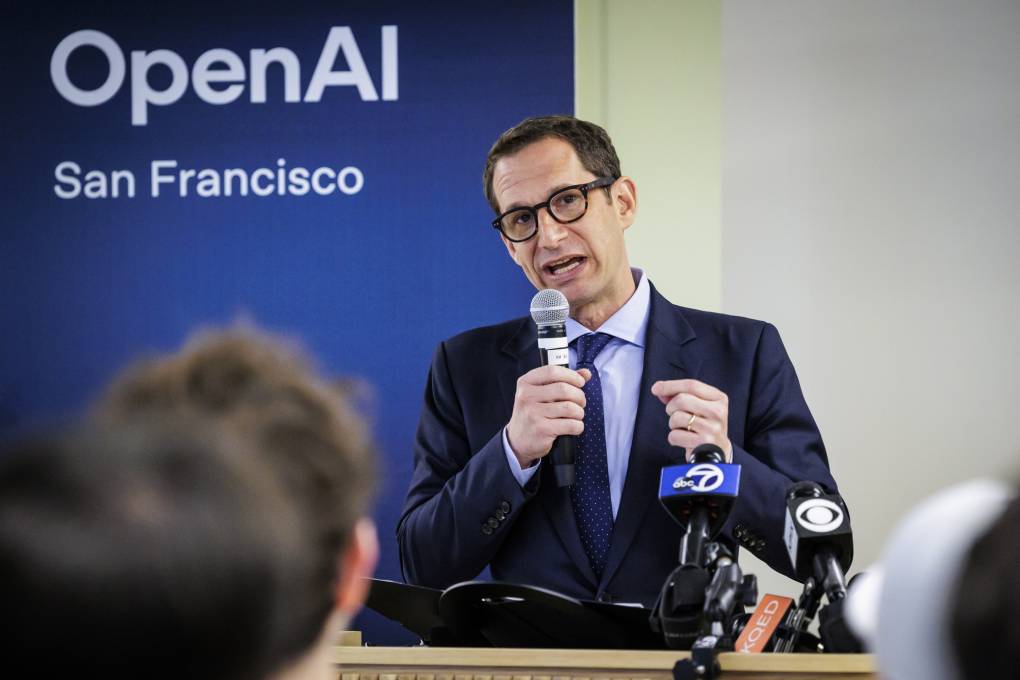Starting with the Gold Rush, San Francisco has always been a boom and bust town. The latest boom is being driven by artificial intelligence, as AI companies and startups scoop up venture capital, real estate, office space and tech talent in the city. Scott ta…
Why it matters
- The influx of venture capital into AI startups is revitalizing San Francisco's economy, reminiscent of its historic Gold Rush.
- A surge in demand for office space and tech talent is transforming the city’s real estate market and labor landscape.
- AI's growth is not only an economic phenomenon but also a cultural shift, influencing how the city is perceived and how it operates.
San Francisco has long been recognized as a city of cycles, characterized by periods of rapid growth followed by downturns. This pattern, which began during the Gold Rush era, has now entered a new chapter driven by the incredible rise of artificial intelligence (AI). As tech firms and startups focusing on AI technology continue to attract significant venture capital, the city is witnessing a modern-day boom that is reshaping its economic and cultural landscape.
In recent years, the AI sector has emerged as a focal point of investment in San Francisco, with numerous startups and established companies vying for funding to innovate in this rapidly evolving field. The surge in venture capital directed towards AI is not just a fleeting trend; it is indicative of a broader shift in the tech industry, where AI is becoming a central driver of growth and innovation. This influx of capital has implications that extend beyond financial metrics; it is altering the city’s real estate dynamics and the labor market, as businesses scramble to secure prime office spaces and attract top-tier talent.
The demand for office space in San Francisco has intensified as AI companies seek to expand their operations. As these firms grow, they require larger headquarters equipped with state-of-the-art facilities to foster creativity and collaboration among their teams. This has led to increased competition for commercial real estate, driving up prices and further intensifying the already competitive market. In many ways, the current landscape mirrors the high-stakes environment of the Gold Rush, where fortunes could be made overnight.
Additionally, the thirst for skilled professionals in the AI sector is reshaping the workforce dynamics in San Francisco. Companies are not only competing for funding but also for the brightest minds in technology and engineering. This competition is pushing salaries higher and leading to a more aggressive pursuit of talent from educational institutions and tech hubs around the globe. The result is a labor market that is becoming increasingly specialized and concentrated in AI and related fields, while also creating a ripple effect in other sectors as companies adapt to the changing demands of the workforce.
However, the rise of AI in San Francisco is not without its challenges. As startups and established tech giants alike race to innovate, there are concerns about the ethical implications of AI technologies, including issues related to privacy, job displacement, and bias in algorithms. These concerns have sparked conversations among policymakers, technologists, and the public about how to responsibly harness the power of AI while ensuring that its benefits are equitably distributed. The cultural fabric of San Francisco is also being tested, as the rapid growth of the tech sector continues to influence social dynamics and exacerbate existing inequalities.
Moreover, as AI continues to flourish, it is reshaping the identity of San Francisco. Once predominantly known for its picturesque landscapes and historical significance, the city is now being recognized as a global hub for technological advancement and innovation. This shift in perception is attracting not only investment but also a diverse array of individuals eager to be part of the AI revolution.
With this transformation comes the potential for significant economic benefits, including job creation and increased productivity. If managed wisely, the current boom could lead to a more prosperous future for San Francisco. However, it is crucial for stakeholders to address the accompanying challenges proactively to ensure that the city remains an inclusive environment for all its residents.
As San Francisco navigates this new era marked by the rise of artificial intelligence, the city stands at a crossroads. The decisions made today will shape the trajectory of its economy and culture for years to come, determining whether it can sustain this newfound growth while also fostering a fair and equitable society.











